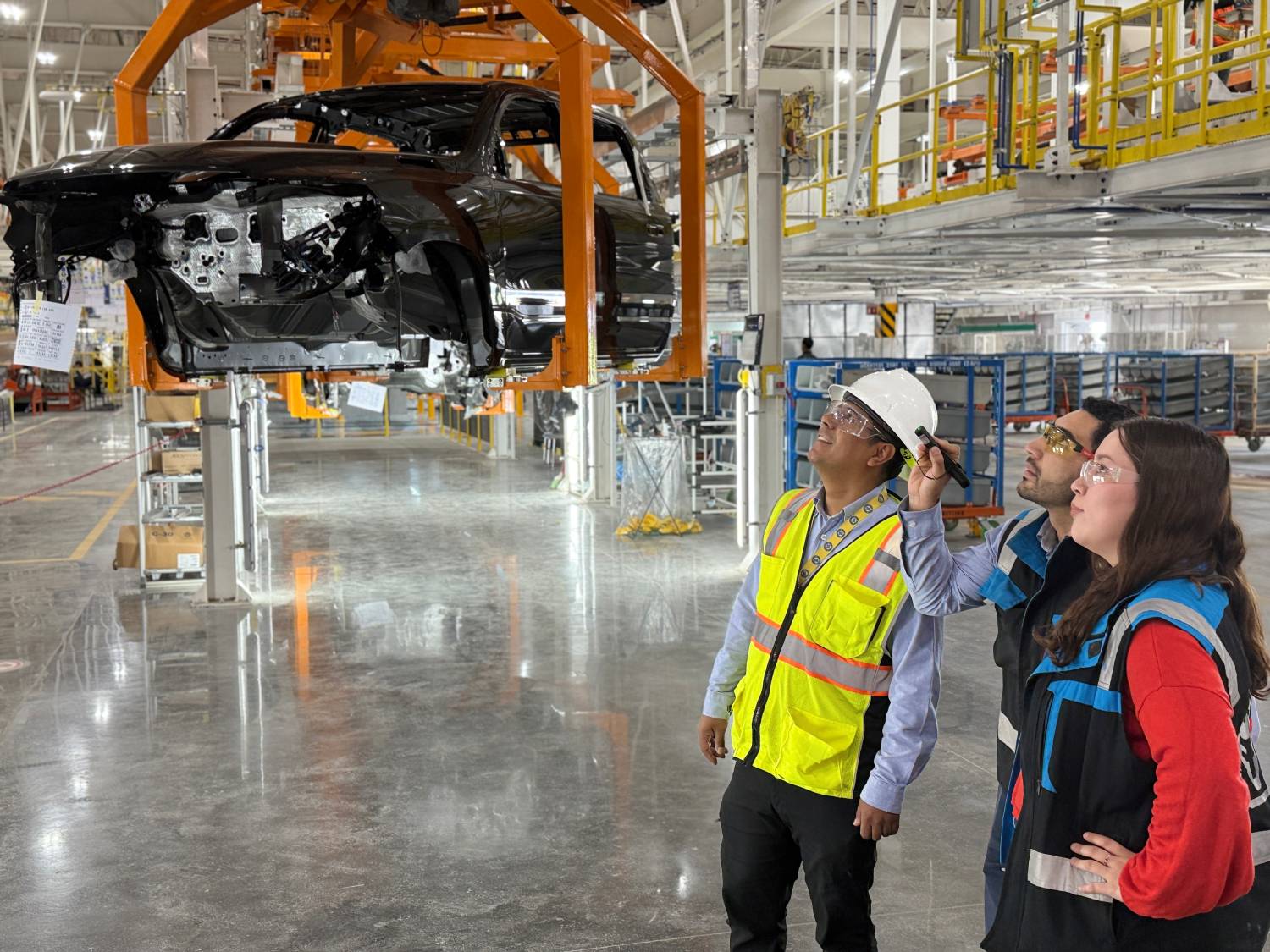
A Guide to Implementing Industry 4.0 in Mexican Manufacturing
September 16, 2025To stay competitive in the rapidly evolving landscape of global manufacturing, companies must embrace change. For manufacturers in Mexico, this means leading the way into the digital age by adopting Industry 4.0.
This revolution merges physical and digital technologies, creating smarter, more efficient, and more productive factories. The goal is a fundamental shift in how we approach production, supply chains, and business operations. By integrating concepts such as the Internet of Things (IoT), artificial intelligence (AI), and advanced data analytics, businesses can build a fully connected and intelligent ecosystem.
For Mexican manufacturers, this shift presents a powerful opportunity to enhance their global standing.
What is Industry 4.0?
Industry 4.0 represents the fourth industrial revolution, moving beyond basic automation to a new era of cyber-physical systems. Think of it as a smart network where machines, products, and systems communicate with each other autonomously.
This network makes real-time decisions, predicts maintenance needs, and optimizes processes without human intervention. The goal is to create "smart factories" that can adapt to changing demands, reduce waste, and operate with unprecedented efficiency.
The Role of Manufacturing Execution Systems (MES)
A crucial component of any Industry 4.0 strategy is the implementation of a Manufacturing Execution System (MES).
An MES is a dynamic software system that monitors, tracks, and manages the entire manufacturing process from raw materials to finished goods. It bridges the gap between the plant floor and higher-level business systems, like Enterprise Resource Planning (ERP), providing a comprehensive view of production activities.

How an MES Supports Industry 4.0
Data-Driven Decisions: An MES collects real-time data on production, quality, and performance. This gives managers and engineers a precise, up-to-the-minute view of operations, allowing them to make fast, informed decisions. Instead of relying on guesswork, you can use data to pinpoint bottlenecks, improve efficiency, and respond quickly to issues.
Enhanced Automation: By integrating with shop-floor machines and equipment, an MES can automate tasks, control production flows, and ensure processes are followed exactly. This reduces the chance of human error and increases throughput.
Improved Traceability: For industries where product quality and safety are paramount, an MES provides complete traceability. It tracks every part, every process, and every action taken on a product, creating a digital record that is essential for quality control and regulatory compliance.
Increased Visibility: An MES provides a single source of truth for all production-related data. This eliminates data silos and gives everyone—from operators to executives—a clear and consistent understanding of what's happening on the factory floor. This level of transparency is key to boosting efficiency and collaboration.
Practical Steps to Implement Industry 4.0 in Mexico
Implementing a full-scale Industry 4.0 transformation can seem daunting, but it's a journey that can be broken down into manageable steps.
Start with a Strategic Assessment: Begin by evaluating your current operations. Identify key pain points, such as production bottlenecks, quality issues, or supply chain inefficiencies. This assessment will help you prioritize where to focus your Industry 4.0 efforts for the greatest impact.
Pilot a Project: Instead of a full-plant overhaul, start with a pilot project. For example, implement an MES in a single production line or a specific area of your facility. This allows you to test the technology, train your team, and measure the results before scaling up.
Invest in the Right Technology and Expertise: The success of your initiative depends on having the right tools and the right partners. This is where specialized engineering firms come in. Their expertise in industrial engineering solutions and advanced technologies can help you navigate complex implementation challenges and ensure your new systems integrate seamlessly with existing infrastructure.
Prioritize Workforce Training: Your employees are at the center of this transformation. Provide comprehensive training to ensure they are comfortable with the new technology and can use the data and tools effectively. A skilled workforce is essential for realizing the full benefits of Industry 4.0.
Focus on Data Security: As you connect more systems and collect more data, cybersecurity becomes a top priority. Implement robust security measures to protect your intellectual property and operational integrity.
Why Mexican Manufacturing is Poised for this Change
With its strategic location, skilled workforce, and growing presence in industries like auto manufacturers in Mexico, the country is perfectly positioned to become a leader in smart manufacturing.
Embracing Industry 4.0 technologies and leveraging tools like an MES will not only boost productivity and quality but also solidify Mexico's position as a hub for advanced manufacturing in Mexico and beyond. This digital transformation is the key to creating resilient, competitive, and highly efficient manufacturing plants in Mexico that can thrive in a global economy.

Ready to transform your operations and lead the way into the future of manufacturing?
Our team has been at the forefront of engineering innovation since 1983, providing bespoke solutions for complex industrial challenges. From developing robust MES platforms to offering comprehensive project management and advanced simulation, we have the experience and expertise to guide your journey.
Contact Design Systems de Mexico today to discuss how our specialized engineering services can help you achieve your goals.